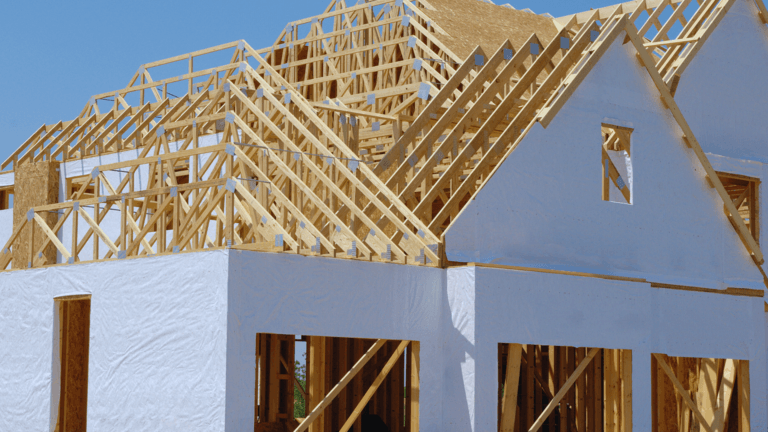
How to Vet a Home Builder
When embarking on a journey to build a new home or undertake a significant renovation project, finding a reputable builder is essential to ensure a smooth and successful construction process. With numerous options available, it’s important to follow a systematic approach to identify a builder who aligns with your needs, expectations, and budget. Here’s a comprehensive guide to help you find a trustworthy general contractor for your project:

1. Seek Recommendations:
Reach out to your reliable network, gather insights and start a list of possible contractors to build your next home. By utilizing these sources, you can gain a deeper understanding of a builder’s professionalism, track record, and overall quality of work. In this article, we’ll explore various channels that can help you find a reputable builder, from seeking advice from friends and family to leveraging the power of social media, trusted organizations, and experienced realtors.
a. Friends and Family: One of the most reliable ways to begin your search is by tapping into your network of friends and family. Connect with individuals who have firsthand experience working with general contractors. Their insights and feedback can provide valuable information about the builder’s professionalism, communication, and overall quality of work.
b. Social Media: Utilize social media platforms to your advantage. Post inquiries about reputable builders and gather responses from your online community. People are likely to share their positive or negative experiences, giving you a well-rounded perspective on various builders.
c. Better Business Bureau (BBB): The BBB is a trusted resource that offers insights into a builder’s reputation and history. Visit the BBB website to view a builder’s rating and any customer reviews or complaints. This can provide valuable information about their track record and commitment to customer satisfaction.
d. Local Building & Permit Office: Your city or county’s building and permit office may maintain a list of licensed contractors in good standing. This list can serve as a reliable starting point, ensuring that the contractors are authorized to perform the work they offer.
e. Home Builders Association: Similar to the BBB, the Home Builders Association provides a directory of local contractors and their membership status. This can give you an idea of a general contractor’s professional affiliations and how long they’ve been in the industry.
f. Realtors: If you have a realtor assisting you (which is a great choice), leverage their experience and connections. Experienced realtors often have insights into reputable builders and can recommend professionals based on their previous interactions and client feedback.
2. Evaluate the Business:
When you have a list of potential builders, it’s time to dig deeper and assess their business practices:
- Business Location: Visit the contractor’s physical location if possible. An organized office or showroom can indicate their commitment to professionalism and attention to detail.
- Options and Showroom: Take a look at their showroom to gauge the quality of finishes and options they offer for your project. This can give you an idea of their workmanship and design capabilities.
- Vendors and Manufacturers: Check if the general contractor highlights specific vendors or manufacturers. This can give you insights into the quality of materials they use.
3. Consider Pricing:
When discussing pricing with a general contractor, it’s important to understand that the initial listed price often represents the base cost. However, there may be additional costs associated with modifications, upgrades, or changes to the original proposal. To navigate pricing effectively:
- Set a Budget: Clearly define your budget and communicate it to the builder upfront. This helps prevent unexpected cost escalations and keeps you on track throughout the project.
- Payment Schedule: Inquire about the builder’s payment schedule. Understand the “draws” system, where you’ll make payments at various stages of construction. Ensure that the payment schedule aligns with your financial capabilities.
- All-Inclusive Pricing: Ask whether the quoted price includes all fees, tests, inspections, and other potential costs. This transparency helps you avoid unpleasant surprises during the construction process.
4. Finalize with a Contract:
Once you’ve identified a builder that meets your requirements, it’s essential to formalize your agreement through a comprehensive contract:
- Contract Contents: The contract should include details about pricing, timeline, payment schedule, and any specific terms or conditions. Having a legal document in place ensures both parties are on the same page.
- Realtor Involvement: Having a realtor by your side during contract negotiations can be invaluable. They can help you understand the terms, negotiate on your behalf, and ensure that your interests are protected.
5. Ask the Right Questions:
During your interactions with potential general contractors, ask pertinent questions to gain deeper insights into their capabilities and approach:
- Process and Timeline: Understand the contractor’s construction process and the timeline for different phases. Effective communication and adherence to timelines are crucial for a successful project.
- Certifications and Insurance: Inquire about the builder’s certifications and insurance coverage. Licensed and insured builders demonstrate a commitment to professionalism and safeguard your investment.
- Business Structure: Learn about the general contractor’s team, including the number of employees and whether they outsource certain aspects of the project. Clarify who your main point of contact will be, such as a foreman.
- Builder’s History: Explore the general contractor’s background and experience. Inquire about their history, whether they are a multi-generation builder, and request references to past clients. Contact these references to learn about their experiences.

6. Trust Your Instincts:
Ultimately, your intuition plays a significant role in choosing a general contractor. A reputable builder should make you feel comfortable and understood. If a contractor fails to meet your expectations or disregards your requirements, it’s a sign that they might not be the right fit for your project.
Finding a reputable builder requires diligent research, thoughtful consideration, and clear communication. By seeking recommendations, evaluating the builder’s business practices, understanding pricing and contracts, asking pertinent questions, and trusting your instincts, you can make an informed decision that leads to a successful construction journey and the realization of your dream home.





